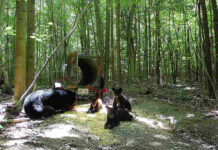Here are this week’s top stories from Farm and Dairy:
1. Backyard chickens for beginners
It’s becoming more common for people to raise poultry in their backyards, even in urban areas. Most city ordinances limit the number of hens and the size of chicken coops, but chicks can still successfully be raised within town limits.
Before you purchase mail-order chicks, take note of the breed’s characteristics and what kind of environment the breeds you’ve chosen need. Some breeds only need a square foot of space outdoors, while others require much more than that.
2. What to do with your New Year’s resolutions
Before the end of January, many people have already pushed their New Year’s resolutions out of their minds. Instead of giving up this year, consider some tried-and-true advice from experts to help you achieve your goals.
Whether you’re determined to take control of your finances, create a healthier you or something else, resolutions don’t have to be difficult to attain.
3. How to test forages in cold weather
When the temperature drops, livestock need more energy so they can provide themselves with enough heat to stay warm. If conditions are too cold, some hay crops won’t contain enough energy to meet the increased energy needs of animals.
Forages should be tested to determine their nutrient value. Samples can be collected and sent to a lab for testing. Then, producers can adjust forage rations to meet the needs of livestock.
4. Grain prices perk up after the holidays
Weather is the leading factor in the market. Soybeans are high again, while both wheat and corn exports are below USDA expectations. Crude oil prices reached a five-year low Jan. 6 and gasoline prices seem to be holding steady at lower prices.
A rebound in grain prices after Christmas has been nice, but grain merchandiser Marlin Clark says that without solid fundamental news, it’s difficult to be confident of prices.
5. At Crosswind: Wind farms still promising, but with new challenges
In more than a half a dozen counties, Ohio has over 764 wind turbines, and several more wind farms have been proposed.
Ohio’s wind farms can power 100,000 homes and can meet over 98 percent of the state’s current electrical needs, but the future of wind energy could hinge on two laws signed by Gov. John Kasich in 2014. Space and market demand influence how investors pursue additional renewable energy projects.











